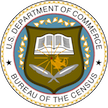 A new report from the U.S. Census Bureau shows that in October 2013 there were 3,118,000 Black or African American students enrolled in college or graduate school. Some 7.5 percent of the entire Black population over the age of 3 was enrolled in college or graduate school. For non-Hispanic Whites, 6 percent of the entire population over the age of 3 was enrolled in higher education.
A new report from the U.S. Census Bureau shows that in October 2013 there were 3,118,000 Black or African American students enrolled in college or graduate school. Some 7.5 percent of the entire Black population over the age of 3 was enrolled in college or graduate school. For non-Hispanic Whites, 6 percent of the entire population over the age of 3 was enrolled in higher education.
If we look at only those aged 20 to 21, we find that 53.5 percent of Whites were enrolled in higher education compared to 45.6 percent of Blacks. For adults over the age of 35, 6.6 percent of the total non-Hispanic White population was enrolled in higher education compared to 9.8 percent of the Black population.
Of 3,118,000 Blacks enrolled in higher education in October 2013, 1,880,000, or 60 percent were women.












What are these “facts” trying to share with us? Does this data tell how many of these “students” are in For-Profit schools? How many actually Graduate? How many owe thousands of dollars with useless degrees or NO degree? How many of these “students” are Male/Female?
What are these “FACTS” telling us?
Nothing! Blacks still don’t graduate at the rates of their White or Latino peers anywhere
John,
These statistics are a demonstration of progress. 50 years ago the number of Black or African American students in higher education was negligible. The numbers have not only increased but the percentage has surpassed that of White Caucasian students. This is significant because it may indicate that the university programs to recruit African American students have been successful. This is also important because research has demonstrated that a higher education has a strong positive correlation with financial success.
Of coarse there are people taking courses who don’t complete degrees, and more people with college debt. But now that more African American students are IN higher ed, the universities can now focus more energies toward retaining these students.
Saying that this statistic means “nothing” is an insult to the many students who ARE completing degrees and finding success BECAUSE of the success of these programs. If you don’t believe this is progress then ask yourself: would you prefer to have LESS African American students receiving higher education? It may not be enough progress- I believe there is always room for improvement, but the statistic is a shocking and refreshing piece of good news for our future. Just saying that sometimes the glass is half full, not half empty. Just a thought . . .
“Some 7.5 percent of the entire Black population over the age of 3 was enrolled in college or graduate school. For non-Hispanic Whites, 6 percent of the entire population over the age of 3 was enrolled in higher education.”
Over the age of 3? This number is curious. Why 3? Who at 3 is able to attend college? Isn’t 12 or 13 more appropriate (accounting for geniuses…)? Is that at typo?
No it is not a typo. While JBHE is focused on higher education enrollments, the Census report includes data on the entire population who is enrolled in school. Many 3-year-old children are enrolled in preschool for the first time so that is why the Census data is for all people over the age of 3.
These statistics paint an incomplete picture of blacks in higher education, and the title is misleading. In the 1st paragraph statistics comparing Blacks (7.5%) to Hispanics (6%) over the age of 3. Collectively, these are very low percentages (nothing to be proud of) and doesn’t support the title of this article “For All Age Groups, Black Are More Likely to Be Enrolled in College Than Whites”.
The 2nd paragraph states that in the age range of 20-21, 53.5% of Whites are enrolled versus 45.6% of Blacks, which again does not support the title of the article. And the last stat given, which I would like to point outs is the only that supports the article title, states that for adults over 35 years old, 6.6% non-Hispanic Whites are enrolled and 9.8% Blacks are enrolled. This statistics does show that the black population at this age or older are more likely to be enrolled in higher education as compared to whites, but totally ignores the reasons why. Black people enrolled in college later in life potentially means that they did not have access and opportunity when they were younger to attend college and implicates that they are unable to reach a certain economic status until after their white counter parts.
Overall this news is not impressive.